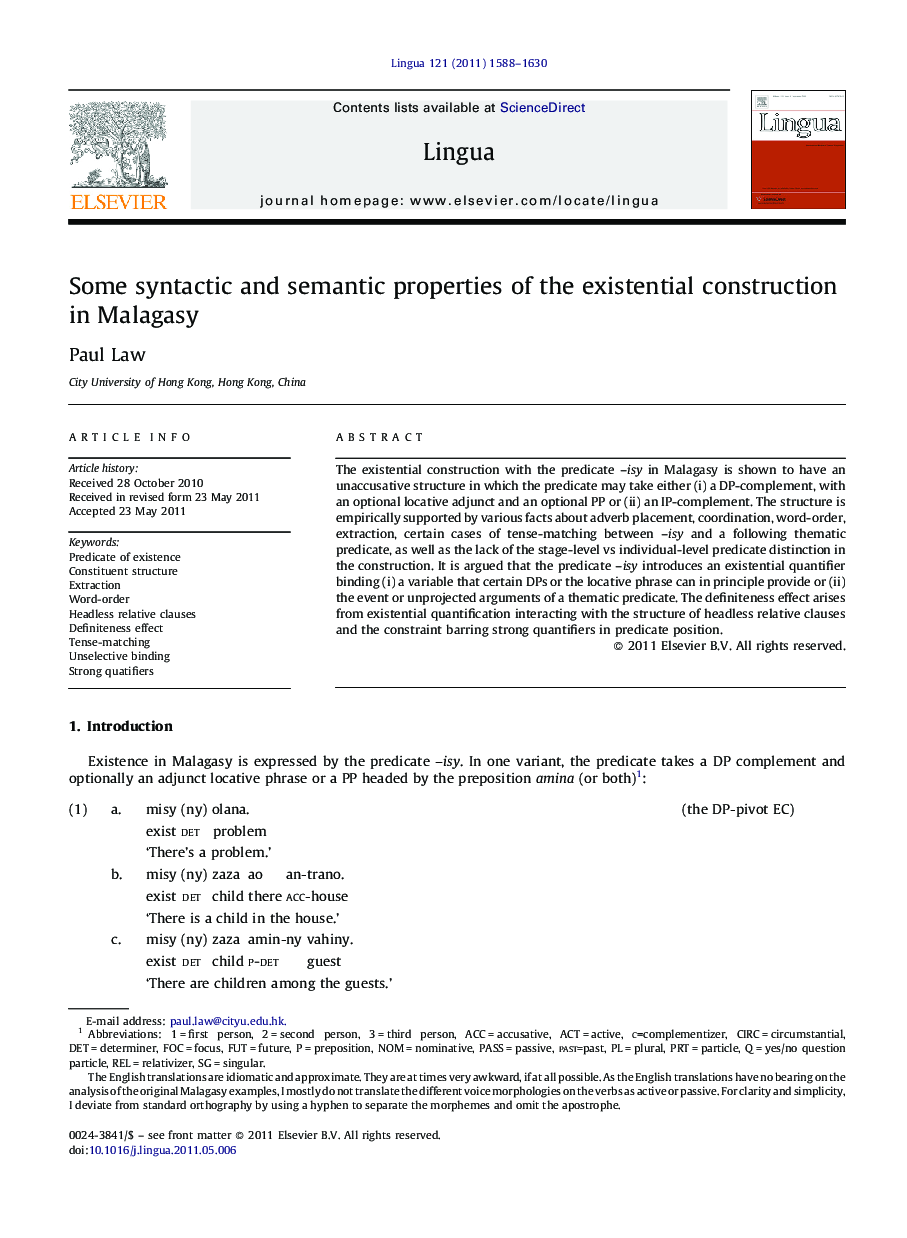| Article ID | Journal | Published Year | Pages | File Type |
|---|---|---|---|---|
| 935454 | Lingua | 2011 | 43 Pages |
The existential construction with the predicate –isy in Malagasy is shown to have an unaccusative structure in which the predicate may take either (i) a DP-complement, with an optional locative adjunct and an optional PP or (ii) an IP-complement. The structure is empirically supported by various facts about adverb placement, coordination, word-order, extraction, certain cases of tense-matching between –isy and a following thematic predicate, as well as the lack of the stage-level vs individual-level predicate distinction in the construction. It is argued that the predicate –isy introduces an existential quantifier binding (i) a variable that certain DPs or the locative phrase can in principle provide or (ii) the event or unprojected arguments of a thematic predicate. The definiteness effect arises from existential quantification interacting with the structure of headless relative clauses and the constraint barring strong quantifiers in predicate position.
► The predicate of existence takes either a DP-complement or an IP-complement. ► The syntactic structure is supported by independent diagnostics for constituency and extraction. ► The existential interpretation arises from unselective binding of a variable. ► The definiteness effect arises from unselective binding interacting with the distribution of strong quantifiers.
